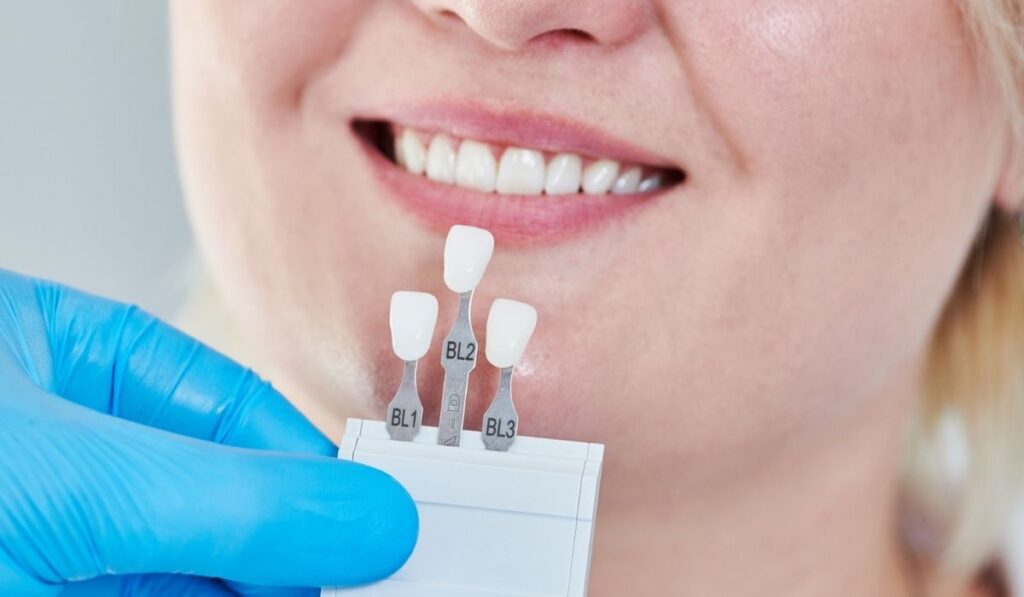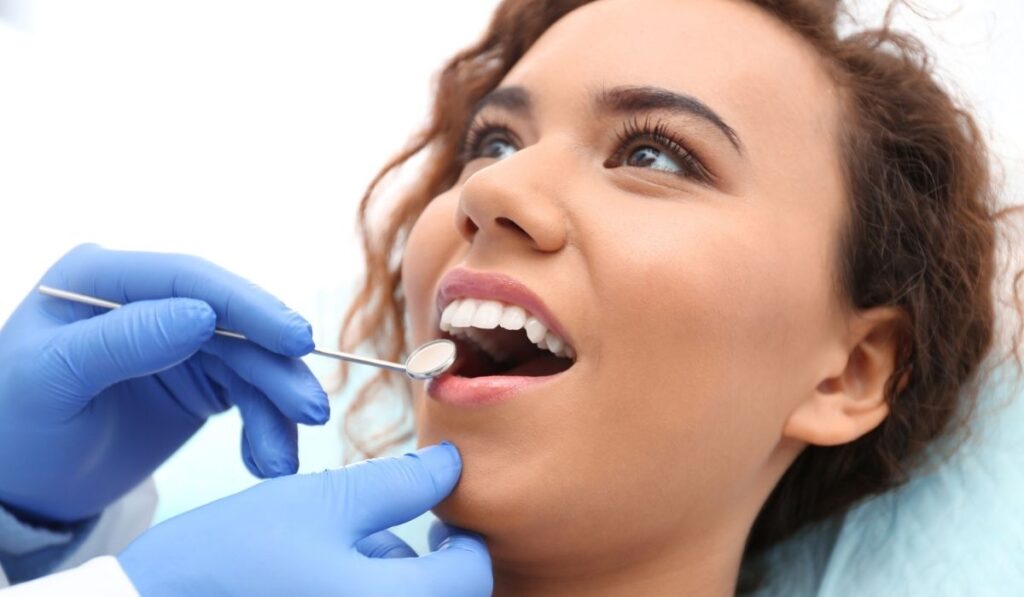Rough tooth enamel is quite easy to spot as our mouths are very sensitive to change. If you’ve noticed roughness on your teeth and are worried about its causes, you’re in the right place. Teeth roughness is more common than you think, and luckily there are multiple solutions for it.
Teeth may feel rough due to enamel erosion, tartar or plaque buildup, hypomineralization, or composite bonding. You can avoid it by brushing your teeth properly and maintaining a healthy diet. Avoid acid, sugar, or citrus, and get sufficient sources of calcium and phosphorus.
There are a lot of ways you can prevent your tooth enamel from eroding. Let’s look at the major causes of enamel erosion in order to prevent this frustrating situation.
What Is Tooth Enamel?

Tooth enamel is the hardest tissue that forms the outer covering of human teeth. It’s a tough part of the tooth that covers the soft layers inside such as the crown, dentin, and pulp. It’s a transparent, protective layer of your teeth.
Most of the tooth enamel is made up of hydroxyapatite, but some other minerals that make up the tooth enamel are:
- Calcium
- Phosphorus
- Fluoride
- Magnesium
- Sodium
Once you lose your tooth enamel, restoring it is almost impossible. But why?
Tooth enamel isn’t made of cells and is non-living. It doesn’t come out from your jaws and gums like the rest of the teeth. It has no nerves, blood vessels, or living tissues. Therefore, damage to the tooth enamel isn’t repairable.
The main purpose of tooth enamel is protection against cavities and tooth decay. If your tooth enamel is strong and healthy, it can protect inner teeth layers from different diseases and dental issues.
6 Signs That Your Tooth Enamel Is Eroding
Erosion of tooth enamel can make the teeth feel rough. Tooth erosion isn’t reversible but you can prevent extreme damage by taking care of it at the first sign of enamel erosion. Look for the signs given below.
Teeth Sensitivity Increased
Erosion of enamel exposes the nerve bundles and blood vessels (dental pulp) underneath the enamel. When you bite into something cold or hot, it can irritate the dental pulp and you can feel a tingle. This indicates a reduction in your tooth enamel.
Increased Tooth Decay
When enamel erodes, the teeth become weak and are more susceptible to tooth decay and breakage. Teeth chipping, cracking, and decaying become more common with weak and eroded enamel.
White Spots on Teeth
Enamel erosion leads to white or shiny spots on your teeth. These spots are visible and quite easy to distinguish from the usual color of your teeth.
Indentation on Teeth (Cupping)
Teeth cupping involves the formation of dents on your teeth. It is a sign of enamel erosion because the dents occur due to a weak or lack of enamel.
Teeth Discoloration
Your enamel is transparent, but the layers beneath form the color. So, when your enamel is eroded, tea, coffee, and other food items are more likely to stain the dentin layer and cause teeth discoloration.
Rough Teeth
The edges of teeth become more and more jagged and irregular as your enamel erodes. It feels rough and eventually leads to teeth chipping.
5 Causes Of Enamel Erosion
Wondering what causes the enamel to erode? Here are the major causes of enamel erosion:
1. Acidic and Sugary Foods
Acid and sugar are the biggest enemies of your tooth enamel. The acid reacts with the minerals of the enamel and causes it to erode. Acidic drinks, sodas, and sugary foods all erode the enamel.
2. Certain Medical Conditions
Medical conditions that cause frequent vomiting, acid reflux, and similar issues can damage the enamel due to the acid that comes from the stomach.
Disorders like bruxism, in which you clench and grind your teeth, can also damage the enamel.
Enamel hypoplasia (thin enamel) is a condition in which the enamel doesn’t develop fully during the developing time.
3. Improper Diet
An unhealthy diet and improper intake of nutrients can lead to enamel erosion. Enamel is made of minerals, as we described above, and a lack of these minerals can cause its thinning.
4. Improper Brushing Habits
Brushing your teeth too hard can damage the enamel. Moreover, brushing your teeth right after consuming an acidic food or drink can cause more damage to your teeth. Lack of fluoride is also a cause of enamel erosion.
5. Swimming
Chlorinated pools affect your tooth enamel if the water comes in contact with your teeth.
How to Prevent Enamel Erosion

You can prevent enamel erosion and protect your teeth from further damage. Here are some tips and methods that you can do for the prevention of enamel erosion:
- Avoid acidic, sugary, and citrus foods. When drinking acidic drinks, use a straw.
- Wait about 30 minutes before brushing your teeth after consuming acidic and citrus foods. Rinse your mouth with water right after eating such things.
- Chew sugar-free gum to promote saliva production in your mouth.
- Brush your teeth with toothpaste that contains fluoride such as Colgate Optic Renewal Teeth Whitening Toothpaste (on Amazon).
- Use a soft-bristled brush like the Nimbus (on Amazon) and don’t overbrush your teeth.
- Get treatments for medical conditions that cause enamel erosion.
- Add healthy nutrients such as calcium and phosphorus to your diet.
- Go for regular dental checkups and never ignore any unusual signs on your tooth.
Other Reasons Why Your Teeth Feel Rough
Enamel erosion isn’t the only reason your teeth might be feeling rough. Here are some other possible causes:
Tartar and Plaque
If you don’t brush your teeth properly, plaque will get left behind and build up on the teeth. If the plaque stays there for a few days, it can lead to the formation of tartar.
Regular dental cleanings are important in order to keep these tartar levels down. Tatar and plaque can make your teeth feel rough and look yellowish.
Composite Bonding
Composite resin can feel weird in your mouth during the first few days because your mouth is very sensitive to changes. Over time, the resin can also become rough and may need retouching.
Hypomineralization (Enamel Hypoplasia)
When the mineral content in the enamel drops below the normal amount, the teeth can feel chalky and rough.
Conclusion
Now that you know about the possible reasons why your teeth feel rough, you can prevent this situation by following the tips mentioned above. Eroded enamel can lead to gum diseases and tooth decay.
Enamel erosion is an irreversible condition, as we mentioned, so you should always take preventive measures to protect your tooth enamel.


